Submitted by WA Contents
Leading cultural theorist, landscape designer, architectural historian Charles Jencks dies aged 80
United Kingdom Architecture News - Oct 15, 2019 - 09:07 14209 views
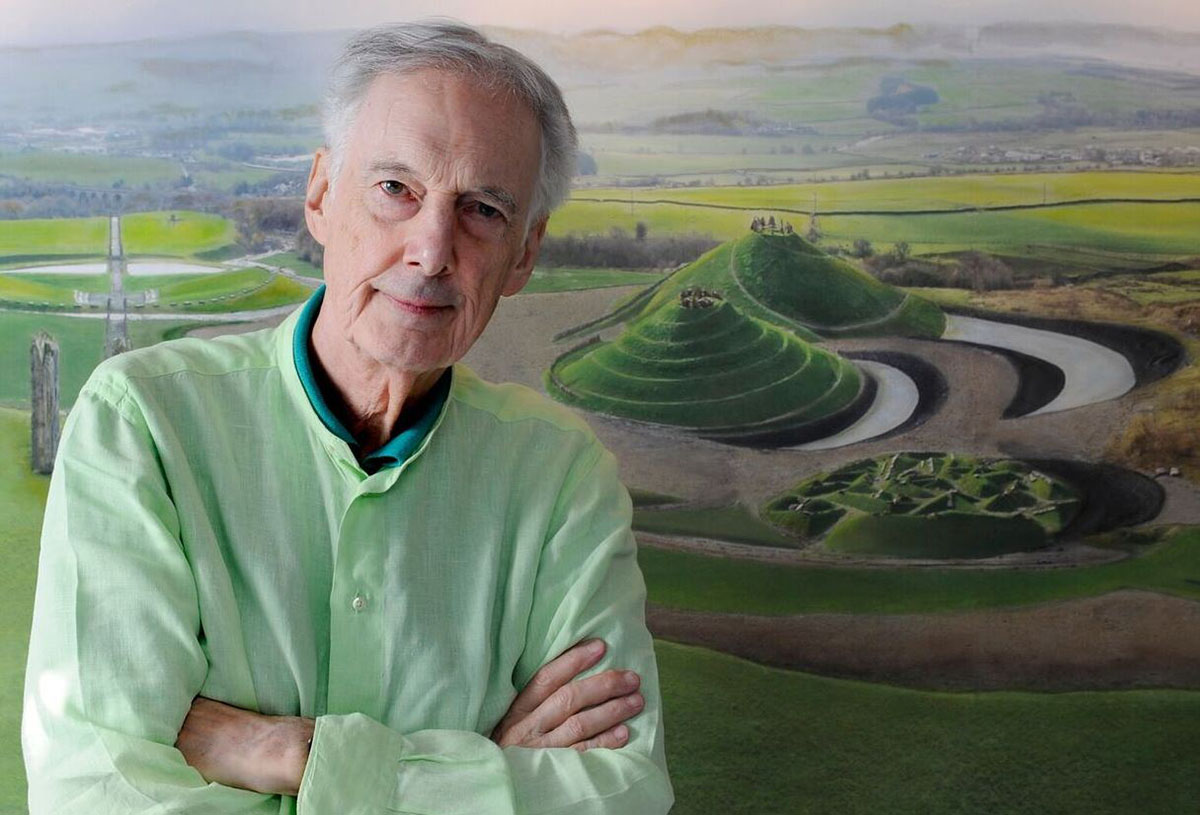
Charles Jencks, renowned cultural theorist, landscape designer, architectural historian, and co-founder of the Maggie’s Cancer Care Centres, has died at the age of 80.
Jencks was one of World Architecture Community's first members since 2007. He become the protagonist and definer of Post-Modernism.
Jencks is widely regarded for his books questioning modern architecture and defining its successors - Late, New and Post-Modern architecture. The Language of Post-Modern Architecture is Jencks' best-selling seminal book, as well as Adhocism, The Architecture of the Jumping Universe and The Architecture of Hope (on Maggie’s Centres). He lectured at over forty universities around the world.
Charles Jencks died at on Sunday 13 October 2019, at his home in London, the Maggie's Centres charity has confirmed.
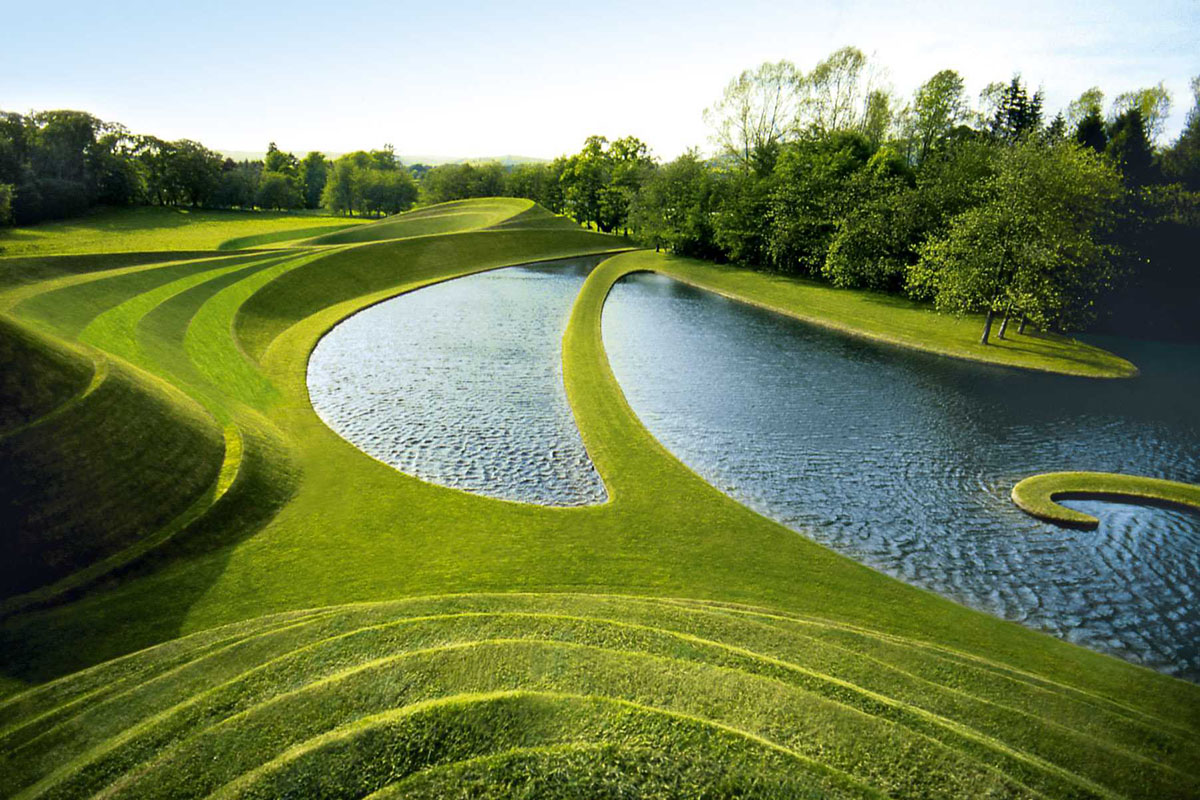
Snail and Snake mounds at the "Garden of Cosmic Speculation". Image © Charles Jencks
Charles Jencks designed landscapes and sculpture and wrote on cosmogenic art. He is the co-founder of Maggie Cancer Caring Centres. Jencks founded the Maggie's Cancer Care Centres in 1995 after his late wife Maggie Keswick Jencks lost her life from breast cancer.
The Maggie's Cancer Care Centres commissions well-known architects to design a series of Cancer Caring Centres, twenty of which were built in twenty years. The Centres grew out of Maggie and Charles’ experience with cancer, the idea of self-help guided by professionals – and changes in lifestyle that could extend life and improve the quality of living with cancer.
Norman Foster, Steven Holl, Benedetta Tagliabue, Frank Gehry were a few who designed a Maggie's Centre in the UK and other countries of the world.
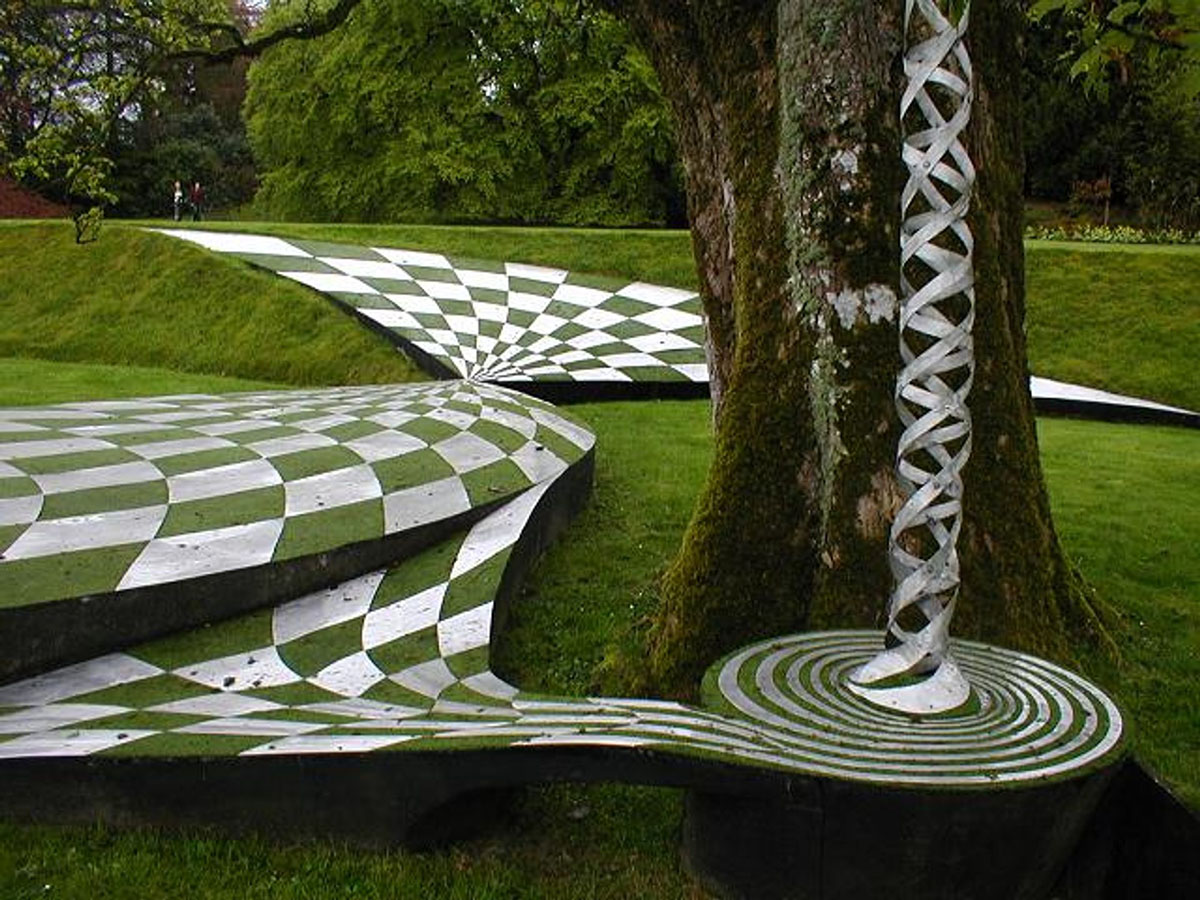
Landscape inspired by black holes, it is named "Garden of Cosmic Speculation" at Jencks' Scottish house. Image via Commons Wikimedia.
Married to Louisa Lane Fox, the Jencks’s spend their time in London and the border area of South West Scotland. Jencks’ London home in Holland Park was Grade I Listed by Historic England in 2018 and plans are underway to convert it to a house archive museum called "The Cosmic House" which will be open to the public by appointment.
"It’s very hard to come to terms with Charles not being here as he has been such a pivotal part in developing Maggie’s vision for a different type of cancer care and turning that vision into a reality," said Maggie’s Chief Executive Dame Laura Lee.
"Over the last 23 years his passion, drive and imagination meant that leading architects from across the world came to build these extraordinary centres; places which have benefitted thousands of people with cancer both in the UK and abroad."
"I know Charles will be remembered for his many talents, but for me personally his legacy lies in the contribution he has made to ensuring people living with cancer, and those close to them, have the best possible support."
"Maggie’s would not be the organisation it is today without his tenacity, dedication and charisma. He will be sorely missed. Our thoughts are with his family," Lee added.
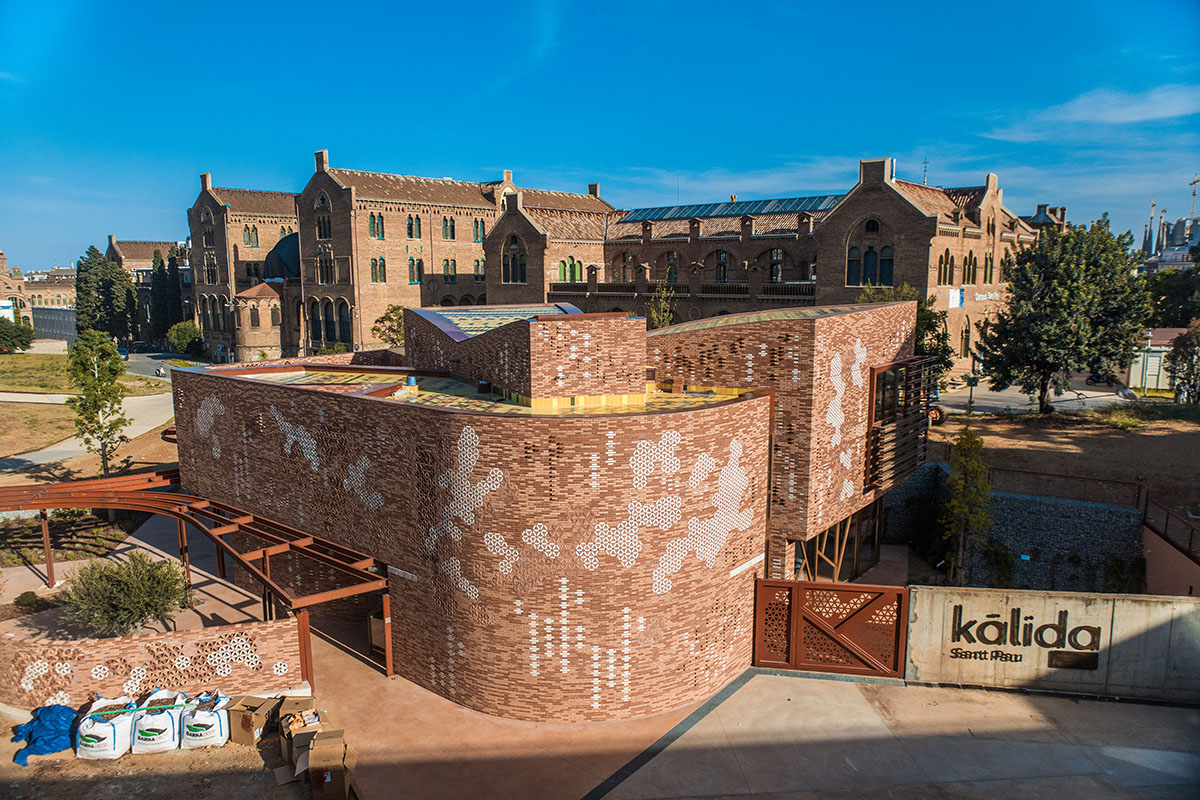
Benedetta Tagliabue – Miralles Tagliabue EMBT Architects-designed Maggie's new caring center in a UNESCO World Heritage site in Barcelona, Spain. Image © Lluc Miralles
Born in Baltimore Maryland on June 21st, 1939, Charles Alexander Jencks followed his parents – the composer Gardner Platt Jencks and Ruth DeWitt Pearl – to Connecticut and Cape Cod. Summers in this idyllic refuge of dissident artists and intellectuals had a strong influence on his outlook.
Jencks took his undergraduate degree from Harvard, in English literature and architecture, he moved to the UK in 1965 where he has lived ever since. In 1970 Jencks received a PhD in architectural history, studying under the radical modernist Reyner Banham, from whom he learned much especially how to enjoy disagreements.
The fruits of this confrontation turned into his pluralist critique of the reigning dogma, Modern Movements in Architecture, published by Penguin books 1973, which became a best-selling textbook for fifteen years. It criticised the suppression of the outlying modernists – the Expressionists, Constructivists, Organicists who did not fit the party line – and showed how Modernists had collaborated with Vichy, Mussolini and Hitler. In short, the book revealed the dark sides of Modernism without either supporting a return to the past or a single style.
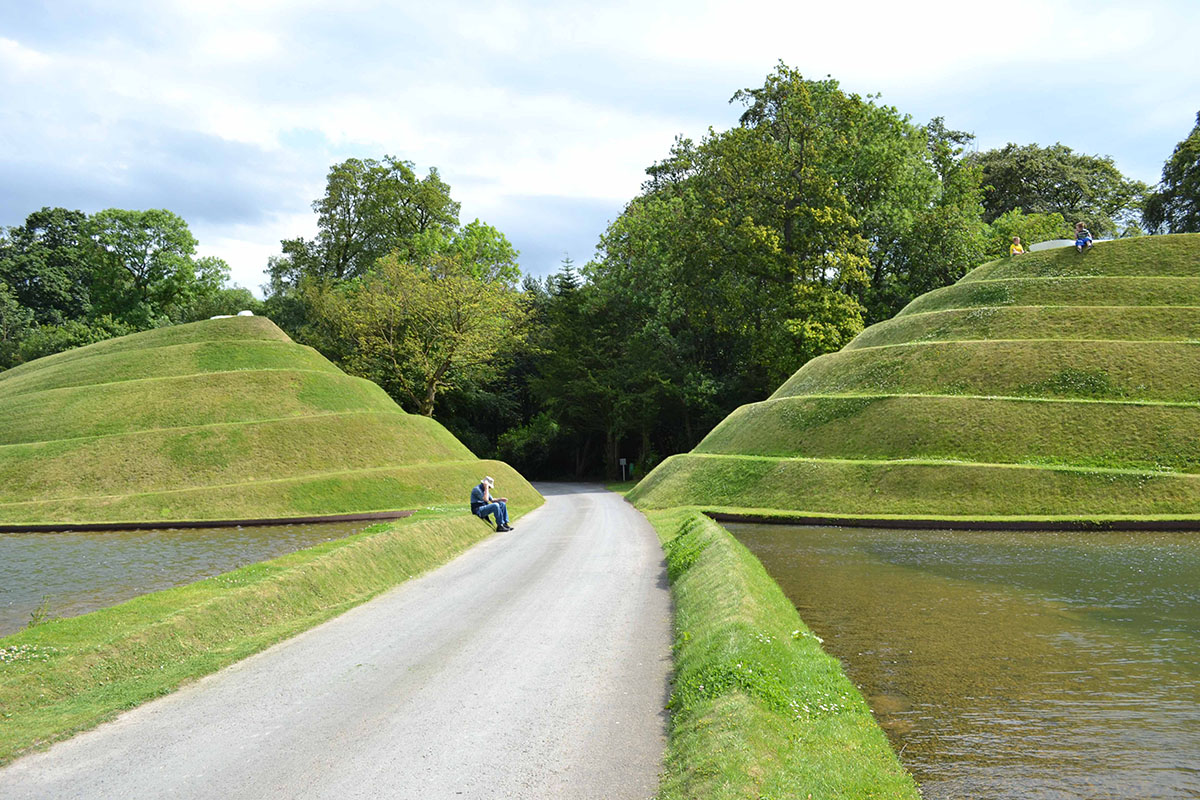
Cells of Life, a landform completed in 2010 by Charles Jencks. Image via The Advanced Landscape
This "criticism from within" led directly to Jencks’ The Language of Post-Modern Architecture, 1977, and seven later editions continuing into the 21st century.
The new PM movement was defined as based on pluralism and hybridity, combining opposite codes of architecture that could adequately express the contradictory requirements and tastes of a global society.
It was defined variously as "the loyal opposition to modernism", "the continuation of Modernism and its transcendence," and "the double-coding of modernism with other codes" – or, in 2007, "Critical Modernism," the fifth edition of his What is Post-Modernism?.
His recent landscape work is summarised in The Universe in the Landscape. Scotland is home to several of his most exciting landscapes including The Garden of Cosmic Speculation and Jupiter Artland, outside Edinburgh.
His continuing project The Crawick Multiverse, 2015, commissioned by the Duke of Buccleuch, culminates annually in a three day festival of performance art and public debates with the world leading cosmologists and scientists.
"To see the world in a Grain of Sand, the poetic insight of William Blake, is to find relationships between the big and small, science and spirituality, the universe and the landscape," wrote Jencks in his statement.
"This cosmic setting provides the narrative for my content-driven work, the writing and design. I explore metaphors that underlie both growing nature and the laws of nature, parallels that root us personally in the cosmos as firmly as a plant, even while our mind escapes this home."
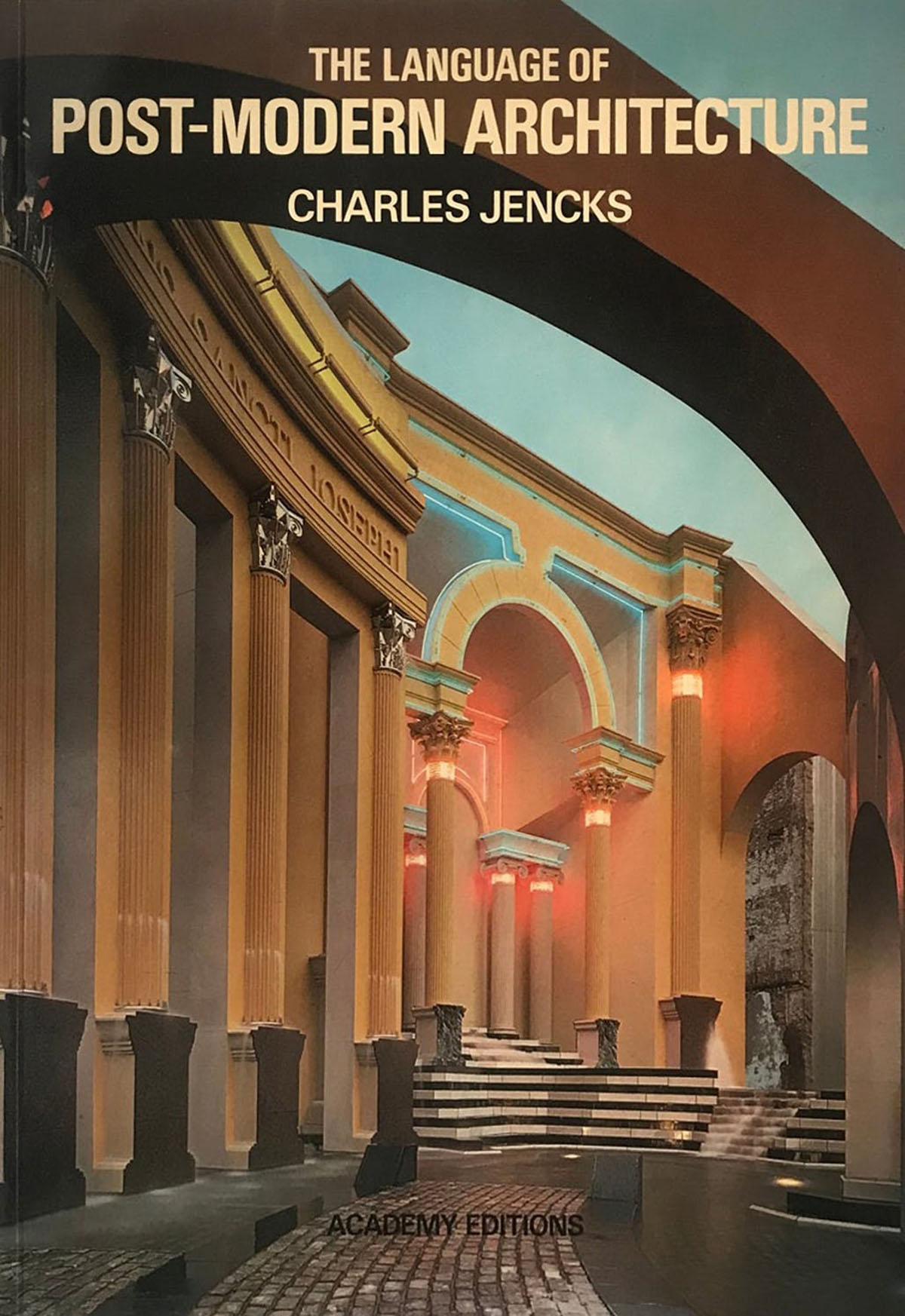
Cover, The Language of Post-Modern Architecture.
He also designed furnitures, sculptures and buildings - he designed furnitures and built from 1975-84, Architecture in Silver, Tea and Coffee Service, Alessi, Italy, 1983, travelling exhibition, 1984, Symbolic Furniture, exhibition Aram Designs London 1985, production by Sawaya & Moroni, Milan, since 1986.
Some furniture and drawings have been collected by museums in Japan and the Victoria & Albert in London. Some of his buildings completed: Garagia Rotunda, Truro, MA 1976-77, The Elemental House (with Buzz Yudell), Los Angeles, The Thematic House (with Terry Farrell), London, 1979-84.
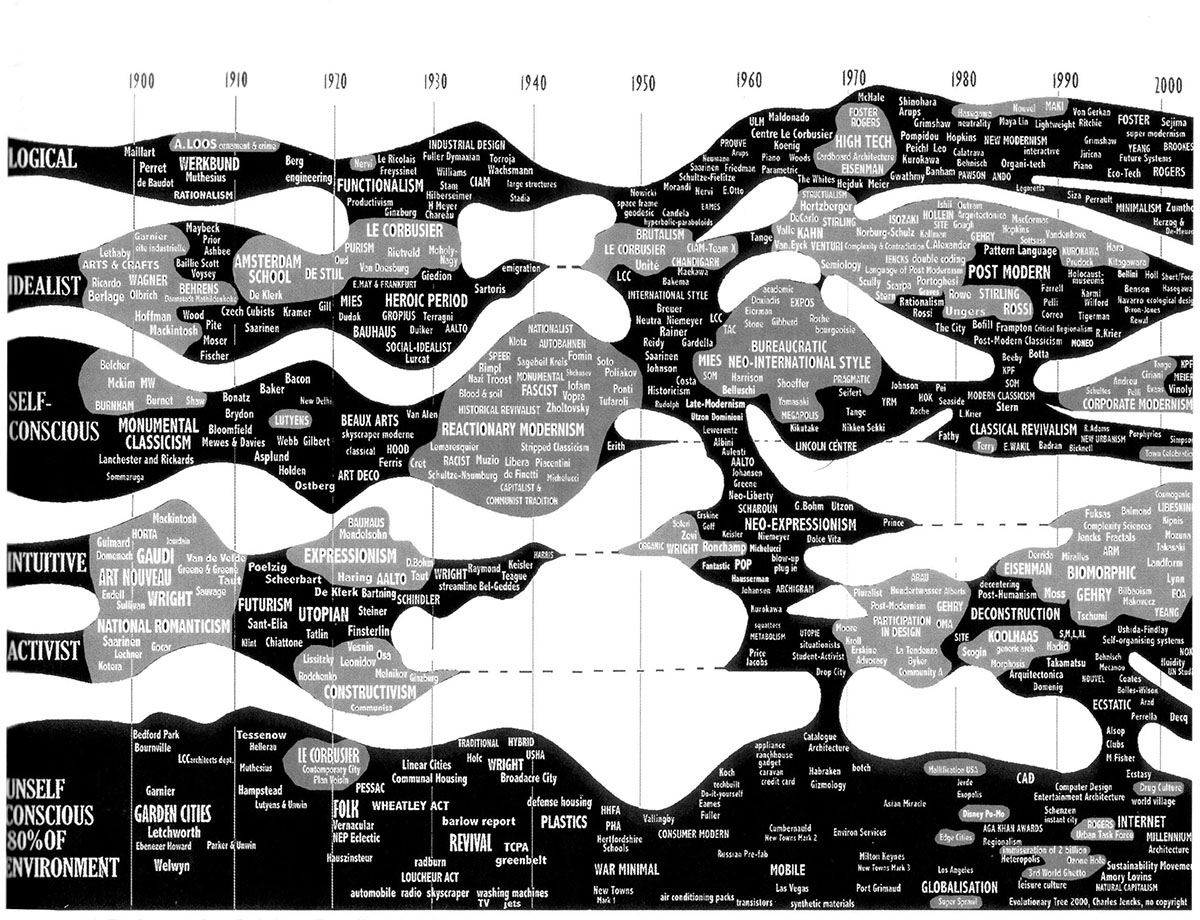
Charles Jencks' "The Century is Over, Evolutionary Tree of Twentieth-Century Architecture" diagram. Image courtesy of Charles Jencks.
Jencks’ own designs experiment with these ideas, as a provocation to a developing Post-Modern tradition. First was his studio in the woods, a cheap mass-produced garage structure of $5,000 – titled polemically The Garagia Rotunda, where he spent part of the summers with his family.
The ad hoc use of readymade materials, and a basic garage, meant that the savings could be used on symbolic ornament: such things as the one-inch rotunda, the eleven shades of blue that bring out the Cape Cod landscape and metaphors of the body.
Charles Jencks was in conversation with Pierre de Meuron, Founding Partner of Herzog & de Meuron, on Herzog & de Meuron's magical concert hall Elbphilharmonie Hamburg at the 2017 World Architecture Festival. Watch WAC's exclusive video here.
Top image: Charles Jencks, courtesy of Crichton Foundation.
